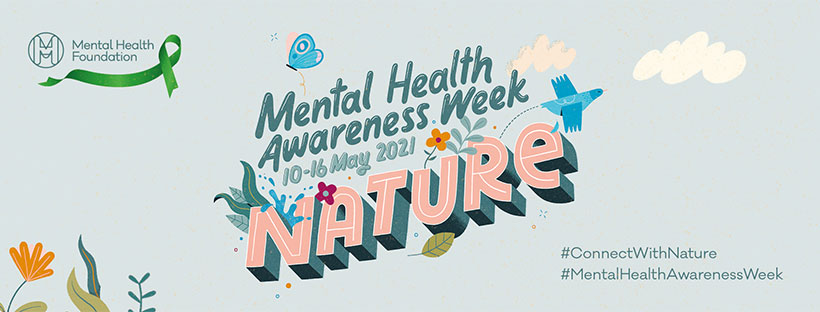Mental Health Awareness Week: Supporting mental health in tech
Established in 1990, Mental Health Awareness Week encourages people to talk openly about the specifics of mental health, with a heavy focus on providing help and advice for those in need. At Influential Software, we support our team and aim to reduce poor mental health in tech.
Mental health support is more critical during lockdown when our colleagues are stuck in a home office with no commute. So to try and support our team remotely and promote a positive mental attitude, we’ve launched several new incentives to get everyone up and out of the house.

Mental health and nature
This year’s theme for Mental Health Awareness Week is nature. This is quite fitting, considering that nature was the only place we could connect with loved ones for a large portion of this year.
Nature is vital for many of us to stay emotionally, psychologically, and physically healthy. Fresh air and exercise have always been recommended to improve mental and physical health. But you don’t have to take up long-distance running. Even a casual stroll through the local park can help you feel more connected and calm. Nature has a unique ability to bring us comfort in times of stress, and increase our creativity and empathy.
Despite these long-known facts, many of us don’t have the opportunity to get out into nature. With 13 percent of UK households having no garden access, Mental Health Awareness Week is trying to emphasise that nature is not a luxury. For more information, read Mental Health Foundation CEO Mark Rowland’s statement.
Mental health in tech
We can’t celebrate Mental Health Awareness Week without talking about the elephant in the room. A 2019 study published by BIMA suggested that we have a crisis around mental health in tech.
The report found that 52 percent of tech workers have suffered from anxiety or depression at some point. In addition, 66 percent of those surveyed said they were stressed at work. Statistics like this are why we provide mental health support throughout the company.
Throughout the year, we have emphasised mental health inclusivity and staff support, especially during the current crisis when people are more likely to feel vulnerable. Read on to see a few initiatives we’ve introduced this year to keep our team together, despite the restrictions keeping us apart.
Stepping up our game with YuLife
Earlier this year, we switched to YuLife life insurance, a rewards-based service that encourages our team to be physically active. Through a game-like app, YuLife incentivises our staff to exercise in return for discounts and vouchers from leading brands. In this way, YuLife rewards healthy living and encourages our colleagues to put everyday wellness first.
So far, our teams have enjoyed the company leader board, which encourages friendly competition through step tracking. The app offers daily challenges, from short walks to an hour of mindful meditation. By taking part in these, users earn YuCoins that they can spend. Vouchers can be applied to sports gear provider Decathlon, Fitbit, Nike, and several more healthy living companies.
Staying fit with virtual workouts
With gyms being closed for most of the year, many of our team were itching for ways to stay fit and get ready for summer. To support the team, a senior salesperson (and personal trainer) began hosting virtual weekly workouts. The sessions have become a great way for the team to stay healthy and feel connected to their colleagues despite working remotely.
Perkbox employee benefits
A few years ago, we decided to work with company culture enthusiasts Perkbox. This platform aims to improve the employee experience through:
- perks and benefits
- reward and recognition
- feedback and communication
- healthcare
- learning and development
Now our team can make use of anything from a free coffee in the city to discounts on experience days and designer brands.
Our mission for a progressive work culture continues
We’re always looking for new ways to support our teams’ mental and physical health. As we find new ways to do this, we’ll keep sharing these techniques with the IT community in the hope they can be adopted on a wider scale. There’s work to do on mental health in tech, and we all play a part in the solution.


